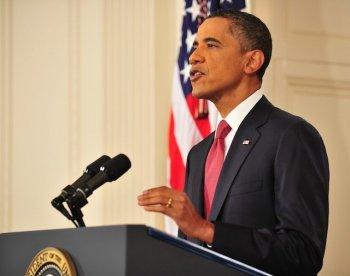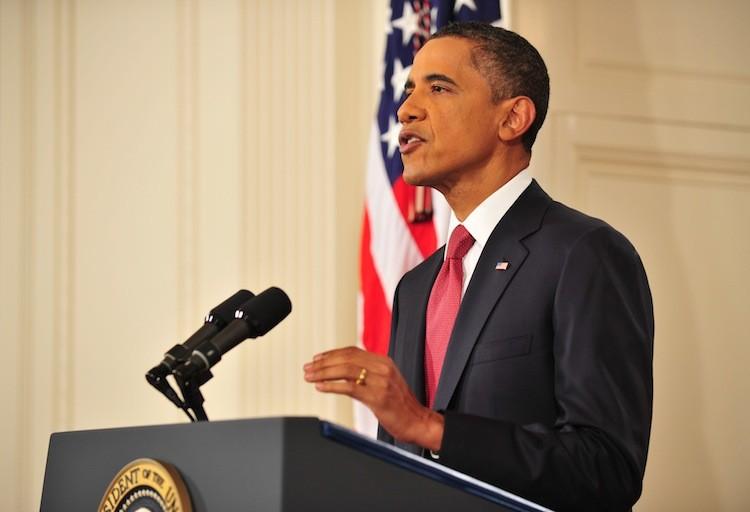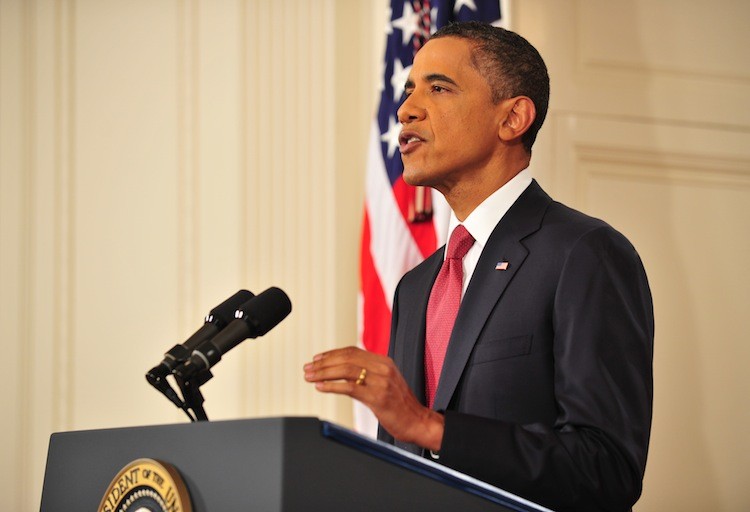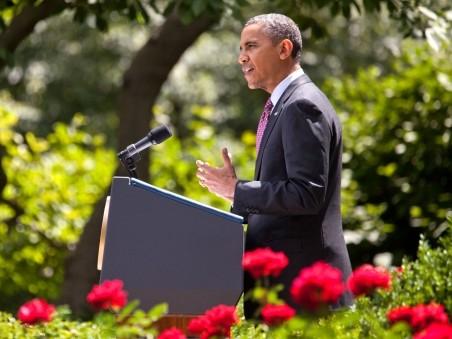Obama Cancels Fundraiser Appearances Amid Debt Impasse
With the need for a solution to the debt-ceiling impasse becoming more urgent by the hour, President Barack Obama on Monday canceled his appearances at two fundraising events in Washington.

President Obama speaks in a rare prime-time address to the nation on July 25, from the East Room of the White House in Washington. Jim Watson/Getty Images
|Updated:





